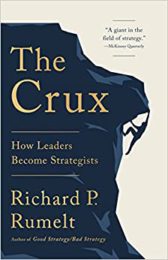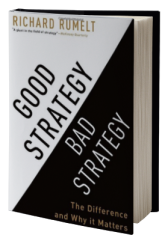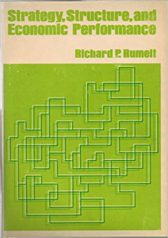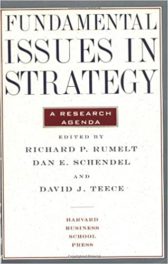The Crux: How Leaders Become Strategists
A strategy is a mixture of policy and action designed to surmount a high-stakes challenge. It is not a goal or wished-for end state. It is a form of problem-solving—you cannot solve a problem you do not comprehend. Thus, challenge-based strategy begins with a broad ...
A strategy is a mixture of policy and action designed to surmount a high-stakes challenge. It is not a goal or wished-for end state. It is a form of problem-solving—you cannot solve a problem you do not comprehend. Thus, challenge-based strategy begins with a broad description of the challenges—problems and opportunities—facing the organization. They may be competitive, legal, due to changing social norms, or issues with the organization itself.
In performing a diagnosis, the strategist seeks to understand why certain challenges have become salient, about the forces at work, and why the challenge seems difficult. In this work, we use the tools of analogy, reframing, comparison, and analysis in order to understand what is happening and what is critical.
As understanding deepens, the strategist seeks the crux—the one challenge that both is critical and appears to be solvable. This narrowing down is the source of much of the strategist’s power, as focus remains the cornerstone of strategy.
The strategist should understand the sources of “edge,” or power, or leverage that are relevant to the situation. To punch through the crux, you will use one or more of them. Willpower is not enough.
To do strategy well, avoid the bright, shiny distractions that abound. Don’t spend days on mission statements; don’t start with goals in strategy work. Don’t get too caught up in the ninety-day chase around quarterly earning results.
Importantly, there are multiple pitfalls when executives work in a group, or workshop, to formulate strategy. The Strategy Foundry is a process by which a small group of executives can do challenge-based strategy, discover the crux, and create a set of coherent actions for punching through those issues. It is quite different from strategic planning or other so-called strategy workshops, where the outcome is essentially a long-term budget.



